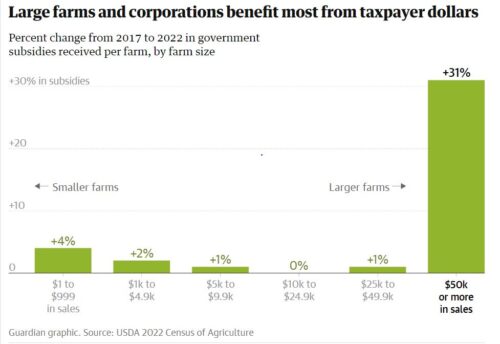To register, click here.

The USDA announced the latest data on the US agricultural system in a press release. It summarizes the highlights:
The 2022 census information is so complicated to access that the USDA provides a video on the main site to explain how to use it. This helps—a lot.
The site for the full report is here. For the full report itself, go here.
Highlights are here.
Most of the data refer to industrial crops like corn and soybeans: feed for animals, fuel for automobiles.
If you want to know about food for people , you can looik at Table 36. Vegetables, Potatoes, and Melons Harvested for Sale: 2022 and 2017
All of this is in miserable-to-read tables. Fortunately, The Guardian to the rescue: ‘America is a factory farming nation’: key takeaways from US agriculture census.
It provides illuminting charts based on the data. For example:

What more to say? Only that our agricultural system needs a major refocusing on smaller, diverse, regenerative farms producing food, as well as those producing animal feed. We should not be growing food crops to produce automobile fuel.